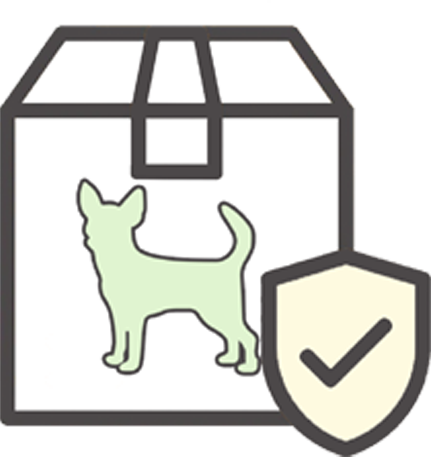Why Do Dogs Lick Their Wounds?
Updated On: Tuesday, November 12, 2024 12:57:02 PM America/Los_Angeles
Dogs will lick just about everything if they have the chance, and wounds are no exception. Licking a wound is natural, instinctive behavior that helps our canine companions manage annoying, associated symptoms such as itchy, painful, and irritated skin. So why do dogs lick their wounds?
Photo by Sara Kurfeß
Reasons Dog Lick Their Wounds
Not only does licking a wound soothe pain, it can also keep wounds clean. Did you know that canine saliva has antibacterial properties? However, the bacteria-killing effect is pretty limited and will not prevent or resolve major infections. So even though licking a wound is a natural response for your doggo, excessive licking should be prevented in order to keep chances of infection down.
Excessive Wound Licking
Though licking a wound does have benefits, constant moisture can prevent a wound from closing properly. Keeping an eye on your fur ball’s behavior is essential, as even healed wounds can be reopened with excessive licking and then become irritated at best and infected at worst. Despite the fact that dog saliva does have minimal antibacterial properties, it also contains icky germs and bacteria that can lead to infection.
Helping Your Dog Recover
One of the most critical parts of wound recovery is preventing irritation and infection. In addition to regular cleaning, preventive actions such as keeping dry, healing skin moisturized minimizes the chances of reopening a wound. A few products that can help your pup’s wound recover are:
- Moisturizers: Just because a wound is healed doesn’t mean that aftercare isn’t important. Healing skin can feel tight, dry, and itchy. A moisturizing balm keeps the skin from becoming irritated, which can cause dogs to lick them in search of relief.
- Indoor dog bathroom: Using a pee pad like DoggieLawn keeps more than wounds clean – a pet potty means that paws and mouths are cleaner, too! This reduces the likelihood of wounds being affected by scratching or licking that can introduce unwanted bacteria into a healing wound.
- No chew spray: A no chew spray discourages excessive licking. While these types of sprays shouldn’t be used on open wounds, they do prevent overgrooming of irritated, itchy skin that can lead to broken skin or hot spots.


